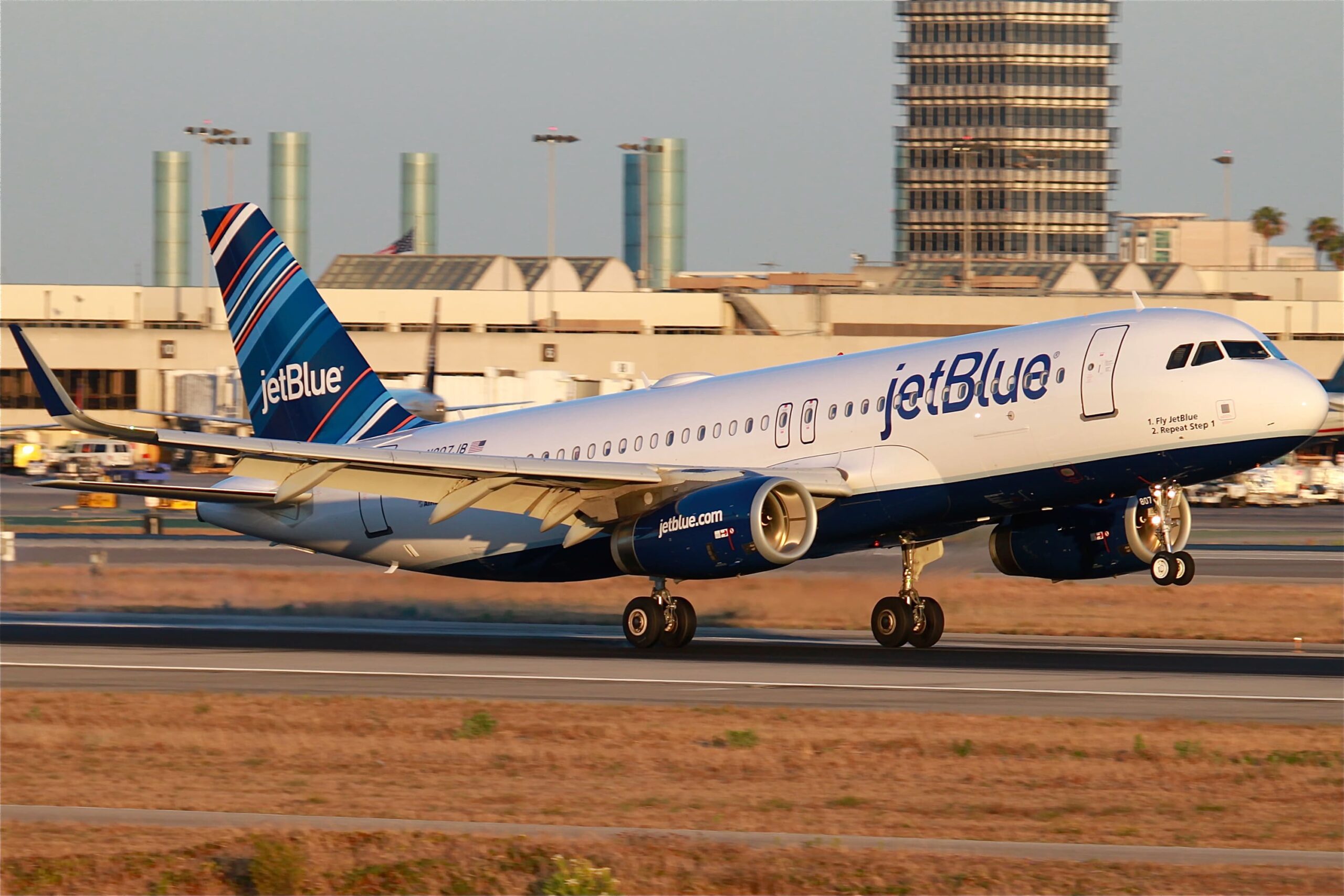A JetBlue Airbus A320 was forced to return to New York’s John F. Kennedy International Airport (JFK) on Tuesday after metal debris fell from the aircraft shortly after takeoff. The incident, which involved flight B6 153 scheduled for West Palm Beach (PBI), highlights the dangers of Foreign Object Debris (FOD) on airport runways.
The Airbus A320-200, registration N507JT, reached an altitude of 5,000 feet when air traffic control (ATC) informed the pilots that debris had been spotted trailing the plane. This prompted the crew to divert back to JFK.
Join us on TELEGRAM for the Latest Aviation Updates fresh to your phone.
Another JetBlue aircraft following N507JT initially reported not seeing any debris on the runway. However, upon closer inspection, they confirmed observing two metal pieces near the runway edge lights.
A subsequent runway inspection confirmed the presence of three medium-sized metal fragments between taxiways L and M.
The affected aircraft landed safely on runway 22L at JFK roughly 30 minutes after departure. Passengers were eventually transported to their destination on a replacement Airbus A320 (registration N636JB) that arrived approximately three hours behind schedule.
Data shows N507JT is a 24-year-old aircraft delivered to JetBlue in 2000. It has remained grounded at JFK since the incident, reportedly in storage due to the FOD event.
FOD poses a serious threat to aviation safety. The incident serves as a reminder of the Air France Concorde crash in 2000, which was attributed to debris falling from a preceding Continental Airlines DC-10. Thankfully, in this case, the prompt reporting and removal of debris prevented a similar catastrophe.
Featured image by JBabinski380 via Wikimedia
Youssef Yahya is the CEO and Founder of Aviation for Aviators. He also serves as the Chief-in-Editor of the platform’s website, where he shares his passion for aviation and provides valuable resources for aviation enthusiasts and professionals alike. His love for aviation and entrepreneurial spirit drive him to create innovative solutions, making Aviation for Aviators a unique resource in the aviation sector.
You might also like:
- Official statement from Aviation for Aviators; Regarding our Instagram Page
- Dubai Airshow 2023 Final Recap
- Are Airbus and Boeing the Only Household Names in the Aviation Industry?
- Four brilliant films about aviation you have to watch!
- Airbus Delivers the First A321XLR to Iberia
Discover more from Aviation for Aviators
Subscribe to get the latest posts sent to your email.

